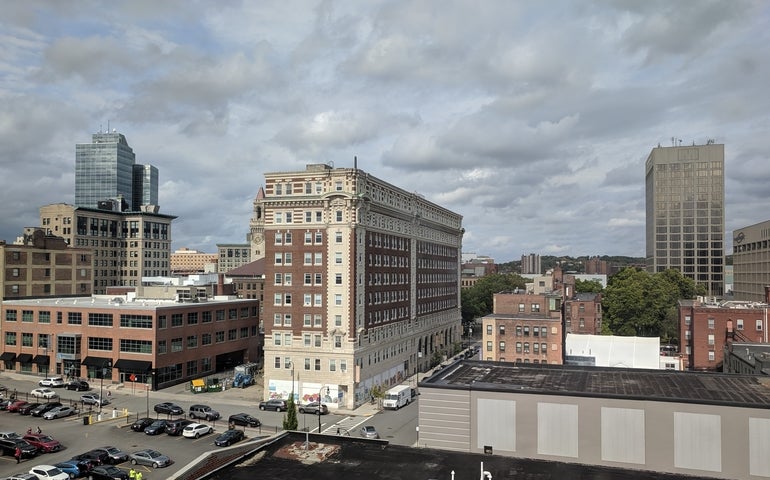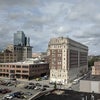Auditor: Worcester among hardest-hit communities in unequal Mass Save benefits distribution
 Photo | Grant Welker
The Worcester skyline
Photo | Grant Welker
The Worcester skyline
A state auditor report has found the Mass Save program provides a skewed distribution of its resources favorably benefitting higher-income communities, with Worcester among the top Massachusetts municipalities negatively impacted.
Mass Save is a financial incentive program operated by electric and natural gas companies, aiming to improvise resident and business energy efficiency by offering rebates, services, and benefits. It is funded by a charge on all ratepayer electric bills.
The report released Monday from State Auditor Diana DiZoglio found 27% of residents of low-income cities, defined as those with incomes below the state median, contributed more than the average rate to Mass Save.
Between 2019 and 2023, Worcester’s Mass Save deficit of $17.31 million, showing the ratepayers in the city contributed far more money than they received through the program. The deficit was the fourth largest in the state.
The report found residents of Gateway Cities and municipalities with Environmental Justice Communities contributed disproportionately more to Mass Save than others, and Worcester falls into both these categories.
Gateway Cities are those with a population greater than 35,000 and less than 250,000, with a median household income lower than the state’s average, and a lower-than-average rate of those completing a bachelor’s degree or a higher degree, according to Massachusetts General Laws.
An Environmental Justice Community is defined by benchmarks including a household income is 65% or less than the statewide annual median, is made up of at least 40% of minorities, and has at least 25% of its households speaking English less than very well, according to the Massachusetts Office of Environmental Justice and Equity.
In addition to being defined as a Gateway City, 92% of Worcester is designated as an environmental justice block.
Worcester’s per-capita net contribution to Mass Save was 125% higher than the state average from 2019-2023. Other Central Massachusetts communities who contributed more than they received from Mass Save were:
- Marlborough - 318% higher than the state average
- Fitchburg - 129% higher
- Milford - 124% higher
“We need a Mass Save program that is fair and transparent, stops shifting the energy savings burden onto working-class communities like ours, and lowers costs for our families already paying the highest utility prices in the state,” Fitchburg Mayor Sam Squailia said in a Monday press release from the auditor accompanying the report.
“While Mass Save has a noble mission of promoting energy efficiency in the commonwealth, its current programmatic structure undermines its mission by widening inequality, eroding economic justice, equity, fairness, and opportunity, and deepening the very disparities that contribute to the environmental justice challenges we must continually seek to address,” DiZoglio said in a Monday press release.
Based on the equity discrepancies found in DiZoglio’s report, DiZoglio’s office presented four recommendations to close the deficit gap:
1. Switching the administrator of Mass Save from utility companies to an independent entity that lacks a direct financial interest in its use, consumption, and delivery.
2. Suggesting the state legislature improve its Mass Save oversight, including holding hearings for the program.
3. Increasing incentives for landowners/landlords to pay part of the modification costs on their properties when the financial benefits are accrued by their tenants.
4. Increasing transparency on utility bills to provide plain-language billing showing Mass Save charges.
Mica Kanner-Mascolo is a staff writer at Worcester Business Journal, who primarily covers the healthcare and diversity, equity, and inclusion industries.









0 Comments